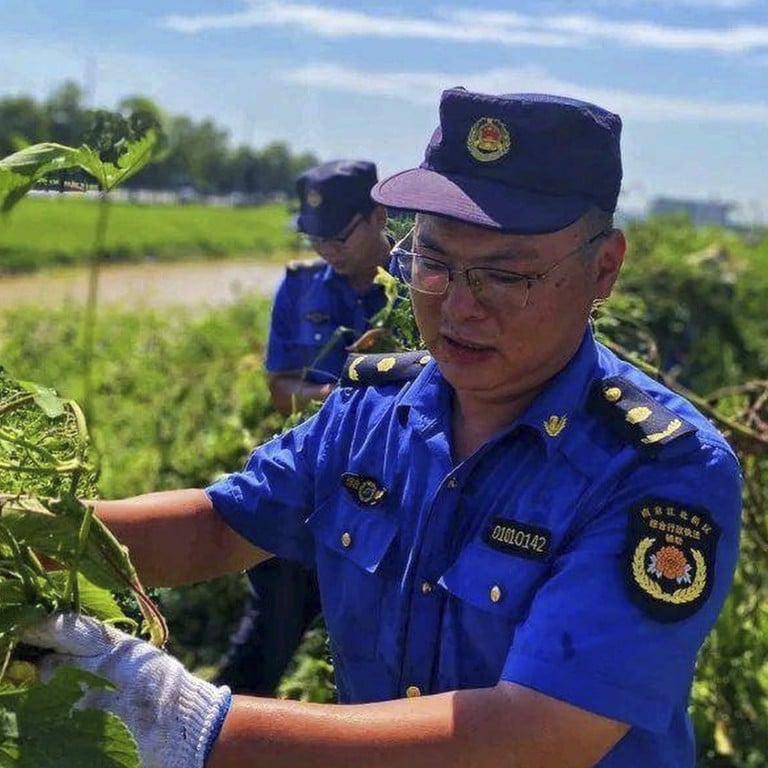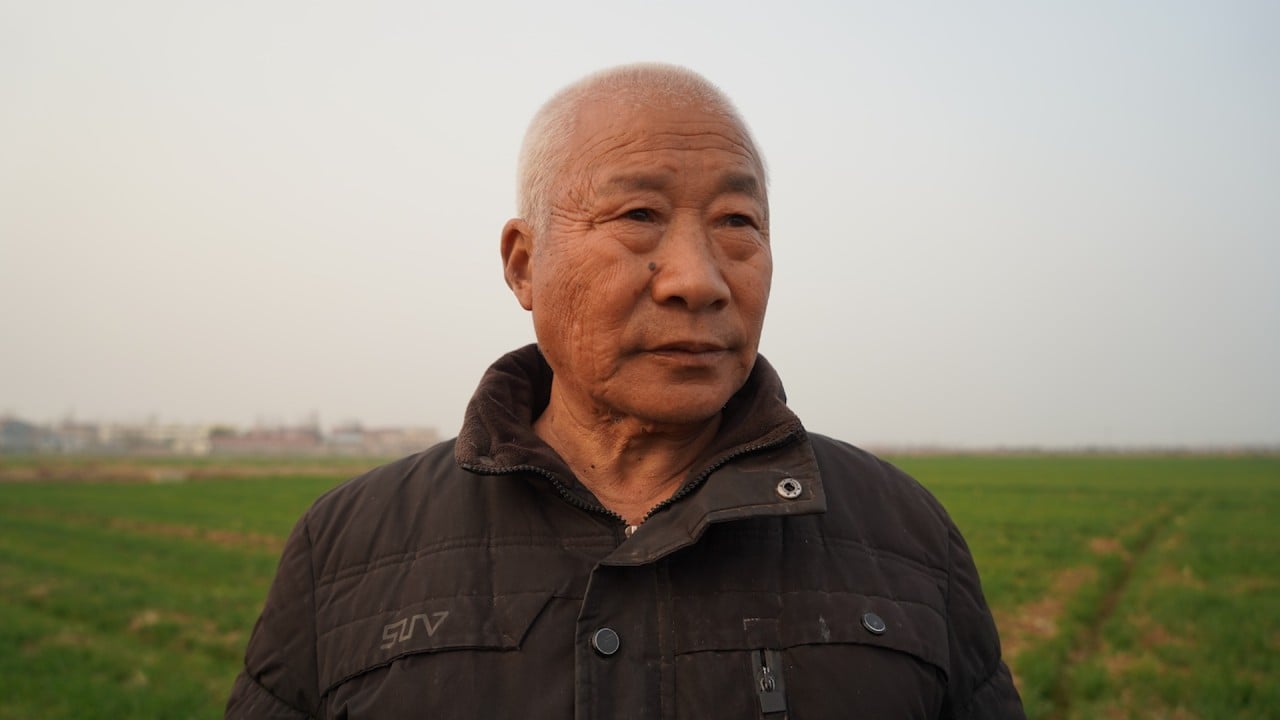
China’s new rural law force accused of bullying farmers after videos of overreach raise concern about tactics
- Agriculture ministry and Farmer’s Daily step in to clarify role of nongguan and requirements for farmers
- Equipment procurement list for rural force circulating online includes night-vision goggles, signal jammers, stab-proof vests and stun batons
The Agricultural Comprehensive Administrative Law Enforcement team – referred to as nongguan, or “agriculture management” – has been a hot issue in recent weeks after video clips of contentious law enforcement actions started trending on Chinese social media platforms.
The force, which was officially set up in January, soon came under public criticism as law enforcers were deployed to the front.
In April, Chinese internet users shared viral video clips of rural management teams’ questionable and intrusive actions, including footage of a farmer in Heilongjiang province in northeastern China being asked to clear corn planted around his fish-farming pond because it was “unsightly”.
In other cases, a team in Jian prefecture, Jiangxi province, were seen catching chickens that were not kept in cages to prevent them defecating everywhere; and a Jiangsu farmer complained that rural law enforcement officers had banned him from stringing a rope between two of his trees to hang clothes.
There is also a video of farmers in Yanshi, Henan province, having to pass a test on basic agricultural skills, such as spraying insecticide.
These videos, many now censored and removed from websites and social media platforms, received thousands of comments, with internet users calling the actions of rural management personnel “ridiculous” and overly intrusive.
A procurement list by a rural enforcement force amplified community suspicion.
According to a list circulating online at the end of April, the agricultural and rural bureau in Tibet’s Nyingchi prefecture ordered law enforcement equipment similar to that used by police. In addition to walkie-talkies and body cameras, the list included night-vision goggles, signal jammers, stab-proof vests and stun batons.
‘Can’t afford to fail’: China vows modern socialism will reach rural masses
Many Chinese internet users questioned the need to equip an agriculture enforcement team with potent equipment.
“I can understand why riot police need this gear, but why do rural management teams need them too? What are they going to do to the farmers?” asked one Weibo user with the nickname Qian Shui de Yu (Diving Fish).
Some also questioned the necessity to test the farmers on their farming skills. “My grandpa, who spent his whole life ploughing the field, might fail the tests,” posted a Weibo user with the pseudonym Best Tractor in Town.
“The Chinese people have seen how the grass-root units became so powerful during the Covid-19 lockdown. A security guard can decide if you can leave your compound,” he said.
Wu said China must address the fear of local administrations operating beyond their permitted boundaries to cause harm to farmers’ lives, or such law enforcement units might become a source of instability.
“People in the rural and urban areas are different. Some rural areas have deeply rooted traditional values and ways of life. Many in the rural areas are very tough people.
“The rural management team has to be careful when enforcing the laws and regulations. If it just bulldozes blindly, it may result in the rural people, who often live within a big extended family, [fighting] back.”
According to a State Council decision in 2019, China’s five administrative law enforcement teams – ecological and environmental protection, transport, agriculture, cultural markets and market supervision – wear the same uniform, with only their armbands distinguishing the different branches.
Facing strong negative sentiment on its newly reassembled law enforcement team, the agriculture ministry and its mouthpiece, Farmer’s Daily, soon weighed in.
On April 15, the ministry said intrusive actions – including banning planting vegetables around farmers’ compounds and prohibiting farming free-range chickens and ducks in villages – were “not within the job scope” of the local rural management law enforcement teams.
Farmer’s Daily clarified a week later that apart from specific occupations – such as tractor and combine harvester operators – Chinese farmers did not need certificates to farm, and certifying farming skills was also not within the job scope of the rural management units.
It said some localities issued professional farmer certificates to encourage farmers to take up new technologies and skills, but those certificates were not “licences” for farming.
China’s ‘new farmers’ can give rural economies a boost
Addressing public concern over the budget to run the massive law enforcement operation, Farmer’s Daily said the team was not “newly created”, but “an optimised combination” of existing teams without additional resources or personnel.
Beijing’s Institutional Reform Plan has aimed since 2018 to combine law enforcement teams overseeing veterinary practices, slaughterhouses, seeds, chemical fertilisers, pesticides, agricultural machinery and agricultural product quality into one body under the Ministry of Agriculture and Rural Affairs.
The formation of one unified rural law enforcement force was reviewed and approved by a ministry executive meeting in November and came into effect on January 1. Beijing said the municipal and county-level rural management teams were set up by the end of last year.



.jpg?itok=t8OJmsoF)